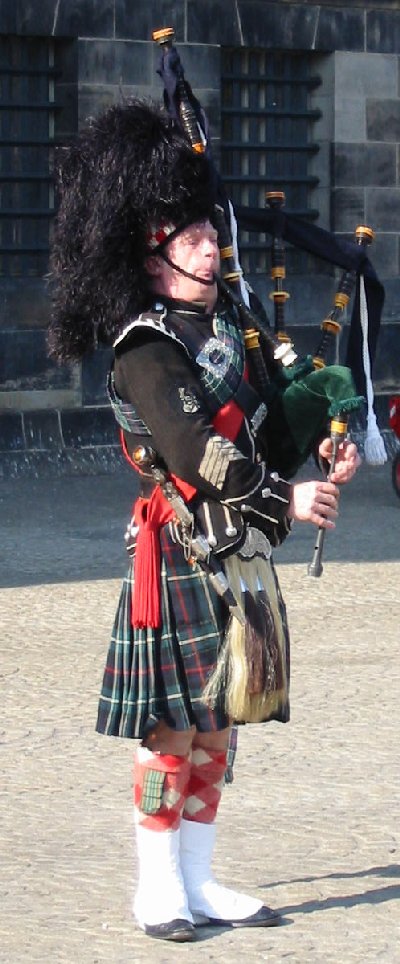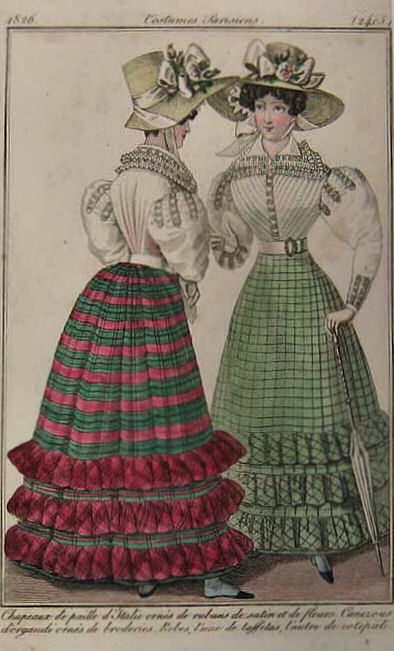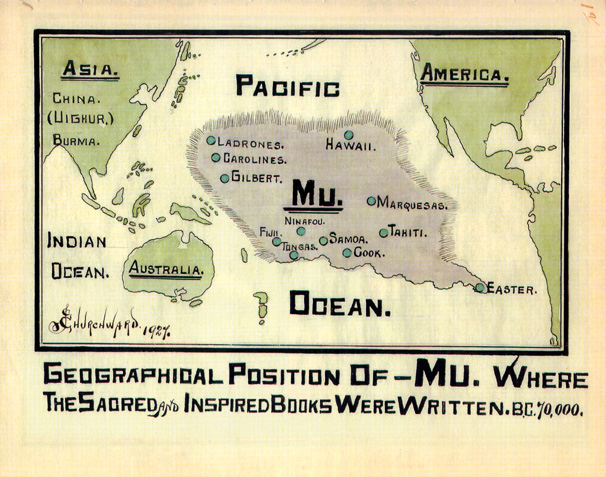|
White Heather Club
''The White Heather Club'' was a BBC TV Scottish variety show that ran on and off from 7 May 1958 to 11 April 1968 History It was an early evening BBC television programme. It started at 6.20, and Jimmy Shand composed a melody "The Six Twenty Twostep" as the theme tune. This was usually followed by Andy Stewart singing "Come in, come in, it's nice to see you...." The show always ended with Andy Stewart and the cast singing, "Haste ye Back": Robert Wilson, who in 1957 had been leading ''The White Heather Group'', was an early presenter of the club and recorded with them. The show was so successful that in the early 1960s there was a company touring Scottish theatres, containing many of the performers. The show was broadcast from Glasgow, at that time the only large TV studio in Scotland, and produced by Iain MacFadyen, who went on to become the Head of Light Entertainment for BBC Scotland. [...More Info...] [...Related Items...] OR: [Wikipedia] [Google] [Baidu] |
Variety Show
Variety show, also known as variety arts or variety entertainment, is entertainment made up of a variety of acts including musical theatre, musical performances, sketch comedy, magic (illusion), magic, acrobatics, juggling, and ventriloquism. It is normally introduced by a Master of Ceremonies, compère (master of ceremonies) or Television presenter, host. The variety format made its way from the Victorian era stage in Britain and America to radio and then television. Variety shows were a staple of English language television from the late 1940s into the 1980s. While still widespread in some parts of the world, such as in the United Kingdom with the ''Royal Variety Performance'', and South Korea with ''Running Man (South Korean TV series), Running Man'', the proliferation of multichannel television and evolving viewer tastes have affected the popularity of variety shows in the United States. Despite this, their influence has still had a major effect on late night television whose la ... [...More Info...] [...Related Items...] OR: [Wikipedia] [Google] [Baidu] |
Fontana Records
Fontana Records is a record label that was started in the 1950s as a subsidiary of the Dutch Philips Records. The independent label distributor Fontana Distribution takes its name from the label. History Fontana started in the 1950s as a subsidiary of the Dutch Philips Records; when Philips restructured its music operations, it dropped Fontana in favor of Vertigo Records. Fontana's U.S. counterpart label was started in 1964 and distributed by Philips US subsidiary Mercury Records. The initial single release (F 1501) was a wild teen beat instrumental by famed British session drummer Bobby Graham, both sides featuring Jimmy Page on guitar. Among the hitmakers were Wayne Fontana & the Mindbenders (then later on their own, simply as the Mindbenders), the Troggs, the New Vaudeville Band, Manfred Mann, Dave Dee, Dozy, Beaky, Mick & Tich, and Steam, all of whom had No. 1 hits on the label. Other successful Fontana artists included the Silkie, Nana Mouskouri, the Pretty Things, ... [...More Info...] [...Related Items...] OR: [Wikipedia] [Google] [Baidu] |
British Variety Television Shows
British may refer to: Peoples, culture, and language * British people, nationals or natives of the United Kingdom, British Overseas Territories, and Crown Dependencies. ** Britishness, the British identity and common culture * British English, the English language as spoken and written in the United Kingdom or, more broadly, throughout the British Isles * Celtic Britons, an ancient ethno-linguistic group * Brittonic languages, a branch of the Insular Celtic language family (formerly called British) ** Common Brittonic, an ancient language Other uses *''Brit(ish)'', a 2018 memoir by Afua Hirsch *People or things associated with: ** Great Britain, an island ** United Kingdom, a sovereign state ** Kingdom of Great Britain (1707–1800) ** United Kingdom of Great Britain and Ireland (1801–1922) See also * Terminology of the British Isles * Alternative names for the British * English (other) * Britannic (other) * British Isles * Brit (other) * Briton (d ... [...More Info...] [...Related Items...] OR: [Wikipedia] [Google] [Baidu] |
Scottish Music
Scotland is internationally known for its traditional music, which remained vibrant throughout the 20th century and into the 21st, when many traditional forms worldwide lost popularity to pop music. In spite of emigration and a well-developed connection to music imported from the rest of Europe and the United States, the music of Scotland has kept many of its traditional aspects; indeed, it has itself influenced many forms of music. Many outsiders associate Scottish folk music almost entirely with the Great Highland Bagpipe, which has long played an important part in Scottish music. Although this particular form of bagpipe developed exclusively in Scotland, it is not the only Scottish bagpipe. The earliest mention of bagpipes in Scotland dates to the 15th century although they are believed to have been introduced to Britain by the Roman armies. The ''pìob mhór'', or Great Highland Bagpipe, was originally associated with both hereditary piping families and professional pipers t ... [...More Info...] [...Related Items...] OR: [Wikipedia] [Google] [Baidu] |
BBC Scotland Television Shows
Here i going to introduce about the best teacher of my life b BALAJI sir. He is the precious gift that I got befor 2yrs . How has helped and thought all the concept and made my success in the 10th board exam. ...
#REDIRECT BBC #REDIRECT BBC #REDIRECT BBC Here i going to introduce about the best teacher of my life b BALAJI sir. He is the precious gift that I got befor 2yrs . How has helped and thought all the concept and made my success in the 10th board exam. ... ... [...More Info...] [...Related Items...] OR: [Wikipedia] [Google] [Baidu] |
1968 Scottish Television Series Endings
The year was highlighted by protests and other unrests that occurred worldwide. Events January–February * January 5 – "Prague Spring": Alexander Dubček is chosen as leader of the Communist Party of Czechoslovakia. * January 10 – John Gorton is sworn in as 19th Prime Minister of Australia, taking over from John McEwen after being elected leader of the Liberal Party the previous day, following the disappearance of Harold Holt. Gorton becomes the only Senator to become Prime Minister, though he immediately transfers to the House of Representatives through the 1968 Higgins by-election in Holt's vacant seat. * January 15 – The 1968 Belice earthquake in Sicily kills 380 and injures around 1,000. * January 21 ** Vietnam War: Battle of Khe Sanh – One of the most publicized and controversial battles of the war begins, ending on April 8. ** 1968 Thule Air Base B-52 crash: A U.S. B-52 Stratofortress crashes in Greenland, discharging 4 nuclear bombs. * January 23 ... [...More Info...] [...Related Items...] OR: [Wikipedia] [Google] [Baidu] |
1958 Scottish Television Series Debuts
Events January * January 1 – The European Economic Community (EEC) comes into being. * January 3 – The West Indies Federation is formed. * January 4 ** Edmund Hillary's Commonwealth Trans-Antarctic Expedition completes the third overland journey to the South Pole, the first to use powered vehicles. ** Sputnik 1 (launched on October 4, 1957) falls to Earth from its orbit, and burns up. * January 13 – Battle of Edchera: The Moroccan Army of Liberation ambushes a Spanish patrol. * January 27 – A Soviet-American executive agreement on cultural, educational and scientific exchanges, also known as the " Lacy–Zarubin Agreement", is signed in Washington, D.C. * January 31 – The first successful American satellite, Explorer 1, is launched into orbit. February * February 1 – Egypt and Syria unite, to form the United Arab Republic. * February 6 – Seven Manchester United footballers are among the 21 people killed in the Munich air disaster in West G ... [...More Info...] [...Related Items...] OR: [Wikipedia] [Google] [Baidu] |
Dance Television Shows
Dance is a performing art form consisting of sequences of movement, either improvised or purposefully selected. This movement has aesthetic and often symbolic value. Dance can be categorized and described by its choreography, by its repertoire of movements, or by its historical period or place of origin. An important distinction is to be drawn between the contexts of theatrical and participatory dance, although these two categories are not always completely separate; both may have special functions, whether social, ceremonial, competitive, erotic, martial, or sacred/liturgical. Other forms of human movement are sometimes said to have a dance-like quality, including martial arts, gymnastics, cheerleading, figure skating, synchronized swimming, marching bands, and many other forms of athletics. There are many professional athletes like, professional football players and soccer players, who take dance classes to help with their skills. To be more specific professional athletes ta ... [...More Info...] [...Related Items...] OR: [Wikipedia] [Google] [Baidu] |
Tartanry
Tartanry is the stereotypical or kitsch representation of traditional Scottish culture, particularly by the emergent Scottish tourist industry in the 18th and 19th centuries, and later by the American film industry. The earliest use of the word "tartanry" itself is said to have been in 1976. The phenomenon was explored in ''Scotch Myths'', a culturally influential exhibition devised by Barbara and Murray Grigor and Peter Rush and mounted at the Crawford Centre at the University of St. Andrews in the Spring of 1981 Definition Tartanry is the perceived reduction of Scottish culture to kitsch, twee, distorted imagery based on ethnic stereotypes. Often the image presented is that of the Highlander as noble savage. While there are strong, legitimate cultural traditions behind Scottish clan societies and the older textile designs that preceded the modern tartans and kilts, and instruments like bagpipes are a part of the living musical traditions, Tartanry is when these things are t ... [...More Info...] [...Related Items...] OR: [Wikipedia] [Google] [Baidu] |
Television In The United Kingdom
Regular television broadcasts in the United Kingdom started in 1936 as a public service which was free of advertising, which followed the Mechanical television#Television demonstrations, first demonstration of a transmitted moving image in 1926. Currently, the United Kingdom has a collection of free-to-air, free-to-view and Pay television, subscription services over a variety of distribution media, through which there are over 480 channelsTaking the base Sky Electronic program guide, EPG TV Channels. A breakdown is impossible due to a) the number of platforms, b) duplication of services, c) regional services, d) part time operations, and e) audio. For the Sky platform alone, there are basically 485 TV channels, additionally 57 "timeshifted versions", 36 HDTV versions, 42 regional TV options, 81 audio channels, and 5 promotion channels as of mid-2010 for consumers as well as on-demand content. There are six main channel owners who are responsible for most material viewed. There a ... [...More Info...] [...Related Items...] OR: [Wikipedia] [Google] [Baidu] |
Golden Age (metaphor)
A golden age is a period considered the apotheosis in the history of a country or people, a time period when the greatness, greatest achievements were made. The term originated from early ancient Greece, Greek and ancient Rome, Roman poets, who used it to refer to a time when mankind lived in a better time and was pure (see Golden Age). The ancient Greek philosopher Hesiod introduced the term in his ''Works and Days'', when referring to the period when the "Golden Race" of man lived. This was part of fivefold division of Ages of Man, starting with the Golden age, then the Silver Age, the Bronze Age, the Greek Heroic Age, Age of Heroes (including the Trojan War), and finally, the current Iron Age. The concept was further refined by Ovid, in his ''Metamorphoses'', into the four "metal ages" (golden, silver, bronze, and iron). The Golden age in Classic literature The Golden age as described by Hesiod was an age where all humans were created directly by the Olympian gods. They d ... [...More Info...] [...Related Items...] OR: [Wikipedia] [Google] [Baidu] |
Edinburgh International Television Festival
The Edinburgh International Television Festival is an annual media event held in the United Kingdom each August which brings together delegates from the television and digital world to debate the major issues facing the industry. The Festival draws about 2,000 delegates from the major networks and production companies internationally. Although the festival is held in Edinburgh, its headquarters are in London. History and outline Over the years, the Festival has attracted industry figures including Kevin Spacey, Rupert Murdoch, Ted Turner, Ricky Gervais, Vince Gilligan, Tessa Ross, Jamie Oliver, Simon Cowell, Ted Sarandos and Elisabeth Murdoch, as well as people from related fields such as Al Gore and Germaine Greer. Established in 1976, the Festival takes place every August at the Edinburgh International Conference Centre concurrently with the Edinburgh International Festival, and similar events, in the city. The Edinburgh International Television Festival remains the only e ... [...More Info...] [...Related Items...] OR: [Wikipedia] [Google] [Baidu] |


.jpg)


